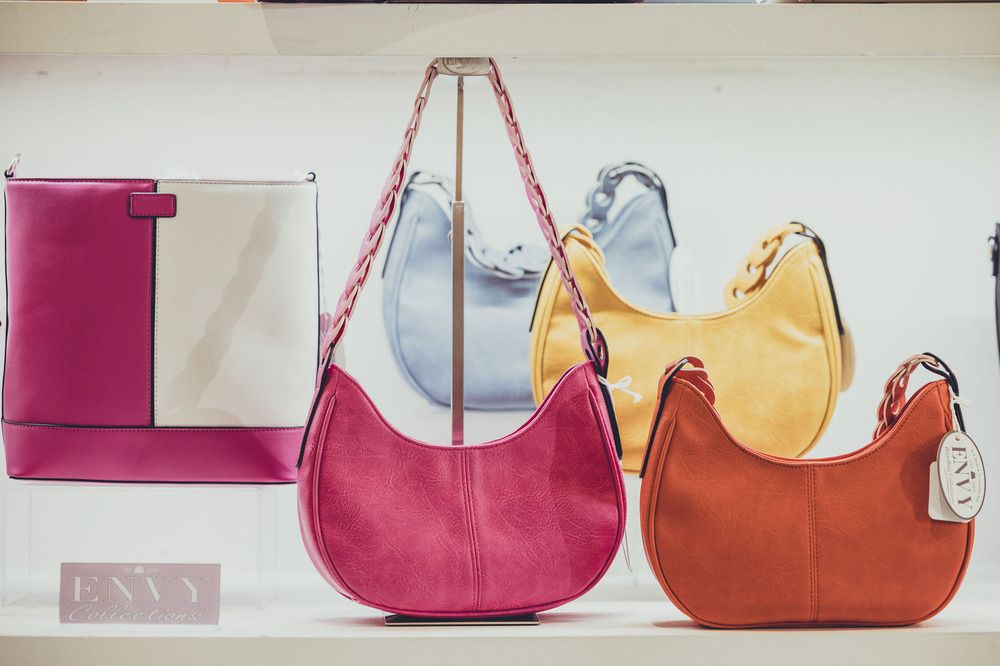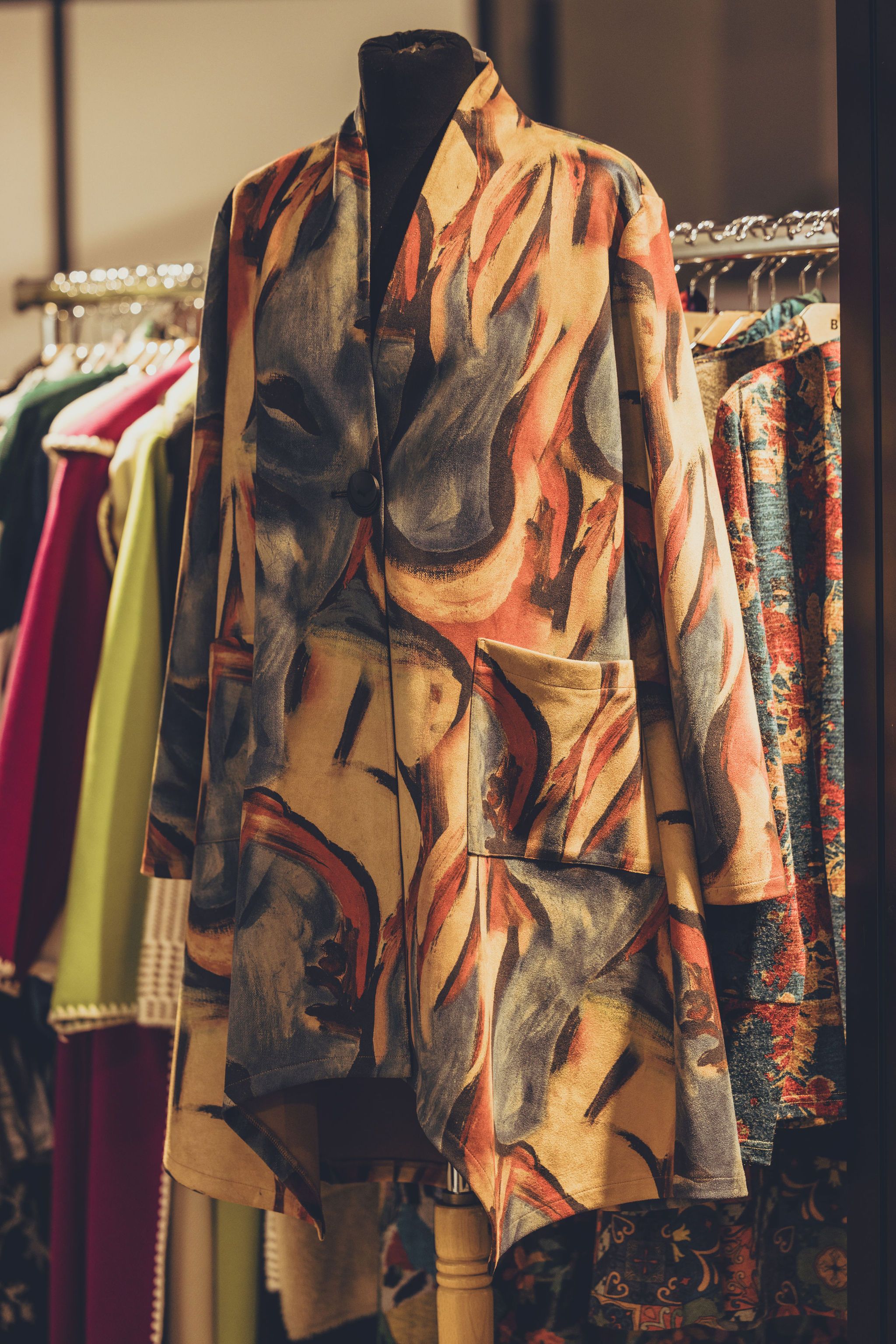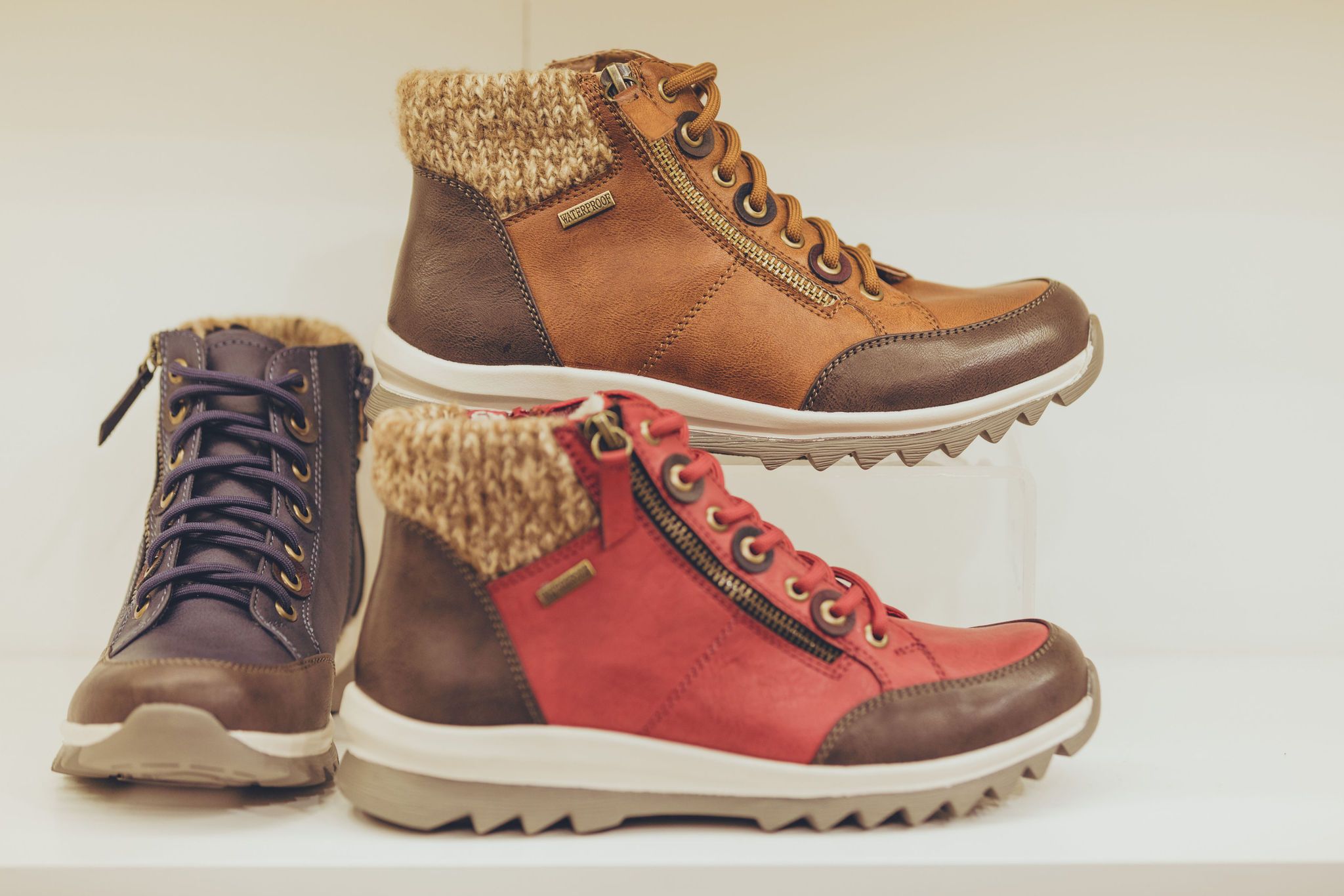6 Fashion Retail Trends To Expect in 2025

Technological advancements, shifting consumer behaviours, and an increasing demand for sustainability are influencing the future of the retail industry. Retail trends in 2025 will be defined by a fusion of innovation, personalised shopping experiences and a more conscious approach to sustainability.
This article will explore the key retail trends retailers should anticipate and prepare for as the fashion sector continues to adapt and thrive.
1. The Rise of Virtual and Augmented Reality
Virtual Reality (VR) and Augmented Reality (AR) aren’t new to the fashion industry, but they’re set to become integral parts of the shopping experience by 2025. The retail industry trends are increasingly leaning towards offering consumers immersive shopping experiences that bridge the gap between online and in-store shopping. These technologies will enable shoppers to try on clothes virtually, experiment with different styles, and visualise how garments will fit them without stepping foot in a store.
In particular, AR allows for virtual try-ons using smartphones or smart mirrors, creating an interactive, engaging experience for consumers. The ability to see how clothing fits, changes with different colours, or even pair with accessories in real-time will make online shopping more dynamic and customer-friendly. Furthermore, VR will offer customers the chance to visit virtual stores, explore showrooms, and make purchases without leaving their homes.
For UK retailers, incorporating VR and AR into their offerings will be essential for staying relevant in a competitive market. These technologies will cater to the growing demand for seamless online shopping experiences while also enhancing physical store visits. By 2025, expect to see retailers invest more heavily in these technologies as they reshape how consumers interact with fashion.
2. Hyper-Personalisation and AI-Driven ExperiencesPersonalisation has long been a buzzword in the retail world, but by 2025, it will reach new heights. With the help of Artificial Intelligence (AI), machine learning, and data analytics, retailers will be able to offer hyper-personalised shopping experiences that are tailored to individual tastes, preferences, and behaviours.
AI will track a customer's shopping history, preferences, and even social media activity to provide tailored recommendations and styling advice.
Retailers will also be able to offer dynamic pricing, where prices adapt based on a shopper's behaviour, purchasing power, or previous interactions with the brand. This level of personalisation will not only improve the customer experience but will also drive loyalty and increase sales conversions. |
 |
AI-powered chatbots and virtual assistants will also become more sophisticated by 2025, capable of providing personalised support, answering queries, and assisting in the decision-making process. These intelligent tools will further enhance the retail experience by providing consumers with immediate assistance and making their shopping journeys more seamless.
For retailers in the UK, this shift towards hyper-personalisation presents an opportunity to connect with customers on a deeper level. By leveraging customer data responsibly and employing AI-driven tools, UK retailers will be able to create tailored shopping experiences that meet the unique needs of their customers.
3. Sustainability and Ethical Fashion
Sustainability remains at the forefront of consumer concerns, and by 2025, it will be an essential factor influencing retail trends. According to Mintel, 57% of people in Britain believe that sustainability is important for fashion. As climate change, ethical sourcing, and the environmental impact of fashion become more pressing issues, consumers are increasingly seeking brands that align with their values. Retailers that prioritise sustainability, both in their products and their operations, will gain an edge in a competitive market.
By 2025, retailers must ensure that their products are made from sustainable materials, are ethically produced, and are designed with longevity in mind. This could include offering clothing made from organic cotton, recycled materials, or innovative fabrics that have a minimal environmental impact. The transparency of supply chains will be a key selling point for consumers, with brands needing to disclose how their products are made, where they come from, and the environmental impact they have.
Additionally, UK retail trends will likely see the rise of circular fashion models, where items are recycled, repurposed, or refurbished to extend their lifecycle. Second-hand and upcycled fashion will continue to grow in popularity, with consumers increasingly willing to invest in pre-loved items. Retailers that adopt circular business models and promote clothing longevity will resonate with the growing eco-conscious demographic.
In 2025, sustainability will not just be a trend; it will be a requirement. Brands that fail to embrace eco-friendly practices risk losing the loyalty of a growing base of conscientious consumers who demand more from their favourite fashion retailers.
4. The Integration of Social Media and Shopping
Social commerce, the blending of social media and e-commerce, is already making waves, and by 2025, this trend will only accelerate. Social platforms like Instagram, TikTok, and Facebook are becoming increasingly important for fashion retail, offering brands direct access to consumers and enabling them to make purchases without ever leaving the app. In 2025, expect to see more retailers leveraging social media platforms as an integrated part of their sales strategies.
Shoppable posts, m-commerce, live-streamed events, influencer collaborations, and interactive advertising are all set to evolve into even more sophisticated tools for driving retail sales. Consumers will be able to shop directly from their social feeds, watch live fashion shows, and engage with influencers who curate collections in real time.
For UK retailers, embracing social commerce is essential for keeping pace with the global shift in consumer behaviour. Retailers should focus on creating a seamless shopping experience across social platforms, leveraging user-generated content, and collaborating with influencers to drive brand visibility and sales. The ability to combine entertainment with commerce will be key to success in the fashion retail industry.
5. The Metaverse: A New Frontier for Fashion
As the concept of the Metaverse continues to gain momentum, 2025 will see fashion retailers tapping into virtual worlds in ways never before imagined. The Metaverse represents a digital space where users can interact, socialise, and shop in a completely virtual environment. This new frontier will offer fashion retailers a unique opportunity to create digital showrooms, host virtual fashion shows, and allow customers to purchase exclusive digital fashion items.
By 2025, expect brands to launch virtual clothing collections and digital assets like NFTs (Non-Fungible Tokens) that can be worn and traded in the Metaverse. Digital fashion, which has already started to take off, will become a mainstream component of fashion retail, with consumers purchasing virtual garments for their avatars in virtual spaces.
For UK retailers, entering the Metaverse may seem like a far-off idea, but by 2025, it will be an essential part of engaging younger, digitally native consumers. Fashion brands that are quick to adopt virtual retail spaces will gain an early advantage in this emerging sector, allowing them to engage with a new generation of shoppers in a space where physical retail cannot compete.

6. The Future of Retail Spaces: Hybrid Models
As more consumers embrace online shopping, the role of physical retail stores is shifting. However, brick-and-mortar stores are not going anywhere. Instead, by 2025, we will see the rise of hybrid retail models that combine the best of both worlds – in-store and online shopping. The physical store will become an experiential space where consumers can touch and feel products, participate in exclusive events, and enjoy personalised services, while the bulk of their shopping might happen online.
One notable example of this hybrid model is the implementation of ‘click-and-collect’ services, where consumers order products online and pick them up in-store, or even have them delivered to their homes. Retailers will focus on providing immersive in-store experiences that can’t be replicated online, such as personalised styling sessions, interactive displays, and limited-edition collections.
For UK retailers, the importance of creating memorable, engaging in-store experiences will be crucial in driving foot traffic and maintaining customer loyalty. A seamless omnichannel strategy will be vital in ensuring that customers can shop according to their preferences, whether online or in-store.
The retail trends expected in 2025 promise a more immersive, personalised, and sustainable shopping experience for consumers. As retailers adapt to these shifts, they will need to invest in emerging technologies like AR, AI, and the Metaverse, while also staying true to the values that matter most to consumers, such as sustainability and ethical practices.
For UK retailers, these trends present an exciting opportunity to reinvent the shopping experience, improve customer engagement, and stand out in a highly competitive market. By embracing the latest retail industry trends and staying attuned to consumer demands, retailers can future-proof their businesses and position themselves as leaders in the fashion retail sector.
By 2025, the fashion retail world will look vastly different. The brands that succeed will be those that are agile, innovative, and willing to embrace the new opportunities that technology and consumer expectations present.
At Autumn Fair, we’re looking for fresh voices to contribute to our retail blog! . Join our community of thought leaders and share your expertise with a wide audience. This is your chance to make an impact and spark conversation within the retail world.
Interested? Let’s connect and collaborate!

)
)
)
)
)
)
)
)
)
)
)
)
)
)
)
)
)
)
)
)
)
)
)
)
)
)
)